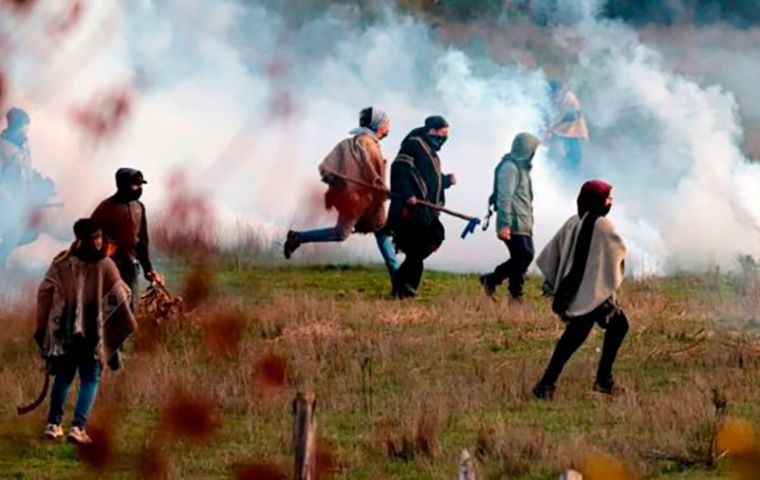MercoPress. South Atlantic News Agency
Chile extends state of emergency in violence-torn south
 The measure allows the armed forces to help the Carabineros police fight the Mapuches insurgents
The measure allows the armed forces to help the Carabineros police fight the Mapuches insurgents Chile's Senate Tuesday passed a bill to extend the current state of emergency in La Araucanía and part of Biobío in force since mid-May 2022 to allow the armed forces to participate in the fight against violent groups operating in the area due to the so-called “Mapuche conflict” involving indigenous communities, logging companies and law enforcement authorities.
This Chilean constitutional tool allows military deployment in the area to support the Carabineros police to control public order, including the surveillance of the main highways and surrounding roads where arson attacks and ambushes are commonplace.
There has been a territorial dispute some 700 kilometers south of Santiago for decades between the State, some Mapuche communities, and forestry companies exploiting lands considered ancestral by the indigenous people. The Mapuches, Chile's largest indigenous group, claim the territories they inhabited for centuries before they were forcibly occupied by the Chilean State at the end of the 19th century in a process officially known as the “Pacification of Araucanía” and which now belong mostly to forestry companies. In this scenario, arson attacks on machinery and land are frequent.
The measure approved Tuesday was the 33rd extension of the constitutional state of emergency. The last recorded attack took place in La Araucanía when two trucks and five forestry machines were set on fire in the Toltén area. After learning of the attack, the Government announced the filing of a criminal complaint against those responsible.
“I can already confirm that we are going to file a criminal complaint. The lawsuits that seem like symbolic acts are not symbolic. That is why it allows the Ministry of the Interior to be part of the process and to request diligences to the Public Prosecutor's Office with the purpose of being able to gather evidence that allows the identification of those responsible”, said Undersecretary of the Interior Manuel Monsalve.
According to Monsalve, between 2022 and 2023, there have been nearly 300 convictions for acts of violence linked to the territorial conflict, in addition to a hundred detainees.




Top Comments
Disclaimer & comment rulesCommenting for this story is now closed.
If you have a Facebook account, become a fan and comment on our Facebook Page!